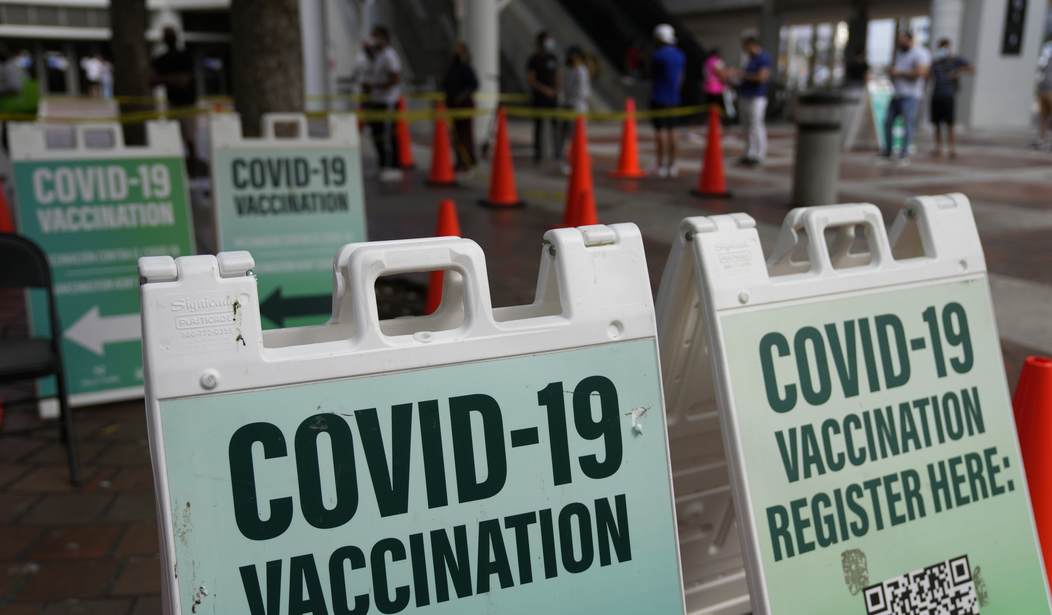Philosopher Robert Bellah once posited that modern Western human beings identify themselves in a peculiar way: as emotional cores, surrounded by baser material. According to Bellah, we are expressive individualists -- meaning that "each person has a unique core of feeling and intuition that should unfold or be expressed if individuality is to be realized." This mode of self-definition wars with older, more traditional modes, which suggest that our identities lie in how we interact with the world and society around us. Expressive individualism, by contrast, suggests that we are not truly ourselves unless the world confirms all of our feelings and intuitions. As professor Carl Trueman points out, this viewpoint is essentially solipsistic; he explains, "When identity is psychologized, and the pursuit of happiness becomes a subjective, psychological matter, anything that challenges that paradigm is deemed damaging and oppressive."
We see this phenomenon most obviously in the bizarre insistence by transgender advocates that not only are they men trapped in women's bodies or vice versa, but that society mirror that incorrect self-perception. But expressive individualism also manifests in other contexts, such as belief in racial essentialism, denial of parental rights, and objection to science itself.
It even crops up in reference to COVID-19.
COVID-19 should be a paradigmatic example of where expressive individualism fails: It is an exogenous shock to the individual, a reality that exists no matter the subjective thoughts or feelings. The data map out individuals' risk factors; particular actions, like vaccination, can lower the risk of hospitalization or death for most people, no matter the intuitions of individuals who object. All of which mean that we should be able to track that data, and to change our response to the pandemic based on new data.
And yet we have now, as a society, psychologized even COVID-19 in expressive individualist terms. Thus, after Bari Weiss pointed out on Bill Maher's show that the public health establishment has failed time and again to follow the data, that the vast majority of those who have been vaccinated are safe from COVID-19, and that we ought to consider life returning to normal, a massive backlash ensued -- backlash from those least vulnerable to COVID-19, who have now internalized a sense of COVID-19 moral superiority. Thus, Sara Haines of "The View" lamented, "I think some of the things we've learned in this pandemic will stay the same. I may never ride the subway without a mask, I may never go indoors to big crowds and feel comfortable without a mask." Michelle Goldberg of The New York Times explained, "What you can't do is force other people, whose vulnerabilities might be much greater than your own, to agree with your risk assessments and join you in moving on while the pandemic still rages."
Recommended
But that's precisely what Goldberg and Haines are doing -- forcing other people to take measures that the science does not support in order to maintain (SET ITAL) their (END ITAL) emotional comfort. Boosters are not stopping omicron. Nothing short of N95 masks is stopping omicron. The disease is now endemic, which is why Dr. Hans Kluge of the World Health Organization's European region stated this week, "Omicron offers plausible hope for stabilization and normalization."
But there will be no normalization for those who have made pandemic paranoia a feature of their identity. That's because the public health establishment has now successfully cultivated a large group of people who measure their moral value by just how compliant and panicked they remain over COVID-19: Fully 68% of people fully vaccinated with boosters remain very or somewhat worried about getting sick from COVID-19 in the next year, compared with just 39% of those who are unvaccinated. This is the precise opposite of what the public health authorities should have achieved -- but expressive individualism has won the day once again, conflating one's feelings with one's identity group.
Ben Shapiro, 38, is a graduate of UCLA and Harvard Law School, host of "The Ben Shapiro Show," and editor-in-chief of DailyWire.com. He is the author of the New York Times bestsellers "How To Destroy America In Three Easy Steps," "The Right Side Of History," and "Bullies."

























Join the conversation as a VIP Member